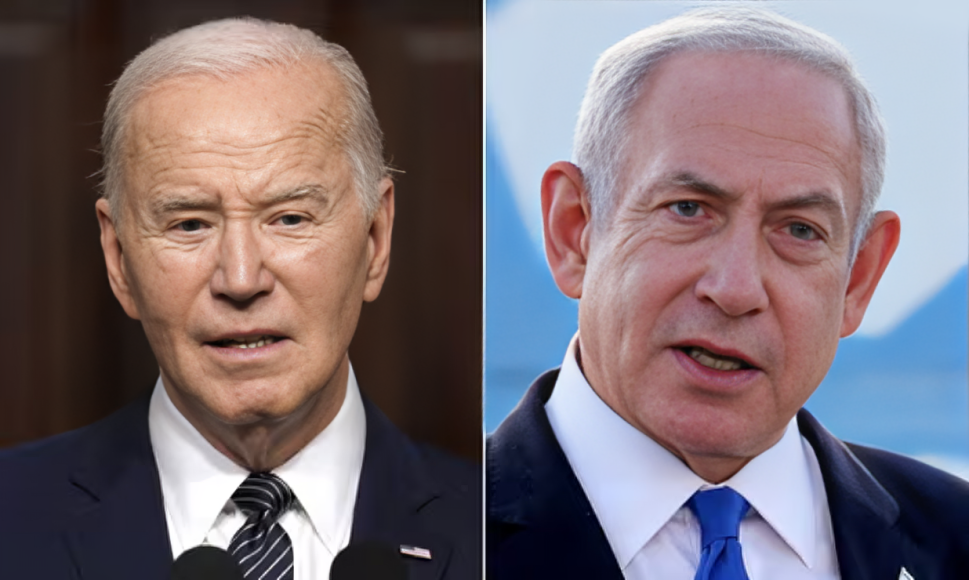In an interview published on April 9, U.S. President Joe Biden characterised Israeli Prime Minister Benjamin Netanyahu’s strategy in the Gaza conflict as a “mistake,” extending his critique of Israel’s management of the ongoing situation.
“I think what he’s doing is a mistake. I don’t agree with his approach,” Mr. Biden said in comments to Univision, a U.S. Spanish-language TV network. He has also previously called Israel’s bombing in Gaza “indiscriminate” and its military actions “over the top.”
“What I’m calling for is for the Israelis to just call for a ceasefire, allow for the next six to eight weeks, total access to all food and medicine going into the country,” Mr. Biden said in the interview. Last week, the White House announced that during a call with Israeli Prime Minister Benjamin Netanyahu, President Biden had conveyed a threat to condition U.S. support for Israel’s offensive on the implementation of tangible measures aimed at safeguarding aid workers and civilians. This conversation came in the wake of an Israeli airstrike that resulted in the deaths of seven personnel from the aid organisation World Central Kitchen.
Israel’s military offensive in Gaza has drawn increasing international condemnation. On the domestic front, President Biden has encountered sustained protests from anti-war activists, as well as Muslim and Arab American communities nationwide. These groups have been vocal in demanding a permanent ceasefire in Gaza and advocating for restrictions on U.S. military aid to Israel.
Hamas’s attack on Israel on October 7 reportedly resulted in the deaths of 1,200 individuals, according to Israeli figures. In response, Israel launched a subsequent military campaign targeting Hamas-controlled Gaza, resulting in the deaths of over 2,000 people, as reported by the local Health Ministry. This violence has displaced the majority of Gaza’s 2.3 million inhabitants and has prompted accusations of genocide against Israel, which it vehemently denies. Additionally, the blockade imposed on Gaza has led to widespread hunger and humanitarian suffering in the region.
Since the Second World War, Israel has been the largest recipient of U.S. foreign aid, although in the past two years, the amount has been eclipsed by the funding and military support provided to Ukraine following Russia’s invasion in 2022.
Historically, the United States has consistently provided diplomatic protection to Israel within the U.N. Security Council, frequently exercising its veto power to block resolutions regarding the conflict in Gaza. However, last month, the U.S. notably abstained from voting when the Security Council called for an immediate ceasefire in the region.
Team Profile
- News Writer
- Kunal Adhikari, a dedicated Journalism student, exudes passion and enthusiasm towards applying theoretical knowledge and storytelling skills. With a fervent interest in current and international affairs, he actively seeks opportunities to contribute valuable insights, refine his writing abilities, and engage as an Intern in the field.
Latest entries


